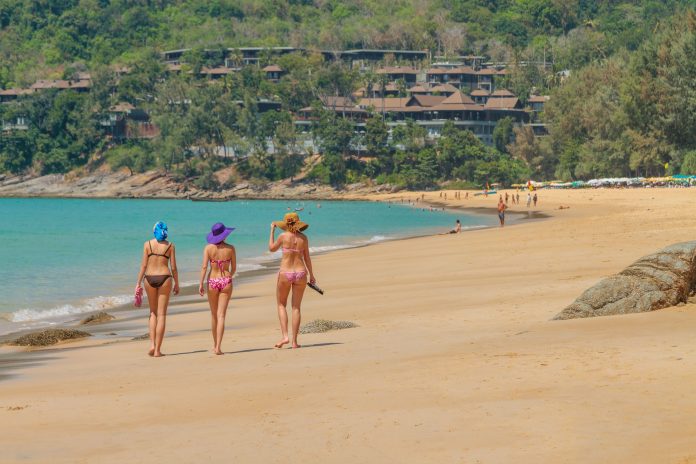Phuket has vaccinated 50% of the provincial population out of its target of 70% of people on the resort island.
Narong Woonciew, Phuket governor, thanked local residents for their cooperation in helping the province get this far.
According to the Phuket sandbox plan to reopen tourism, the province needs to vaccinate at least 466,587 people, or 70% of the provincial population, equivalent to 933,174 doses. The resort island is set to reopen for foreign tourists from 1st July.
The province has organised 6 places to offer the jab outside hospitals which are a 4000-seat gymnasium in Saphan Hin, the Angsana Laguna Phuket Hotel, Phuket Orchid Resort and Spa Karon, X Terminal at Phuket Airport, the Jungceylon Shopping Center and Central Phuket Floresta, said the governor.
He would also like to thank all vaccination campaigners, officers and volunteers.
However, 80,000 people who have not yet signed in to the system to book a vaccination are asked to do so now to speed up the process.
Under the strategy, village heads are asked to visit people at home to invite them to get the jab. If they book now, they will get the first dose immediately.
The province needs a proactive approach if it is to achieve its target and local leaders such as tambon chiefs and village heads will make door-to-door visits to urge people to get vaccinated.
The approach was agreed upon at a meeting yesterday at the provincial hall.
Under the plan, fully vaccinated foreign tourists will be allowed to enter Thailand via Phuket, where they will not have to undergo a 14-day quarantine.
The province aims to inoculate 310,000 people ahead of the reopening on 1st July 1.
Phuket’s vaccine rollout started on 22nd April and two rounds of vaccinations will take place this month and in June.
In all, 400,000 doses will be administered, including jabs for some 56,000 registered migrant workers.
Mr Woonciew said workers and residents who are not Phuket locals will also be vaccinated but they must identify themselves with local administration officers and employers to show that they had worked and stayed in the province for a while to prevent those from other provinces from grabbing jabs which should go to locals.





